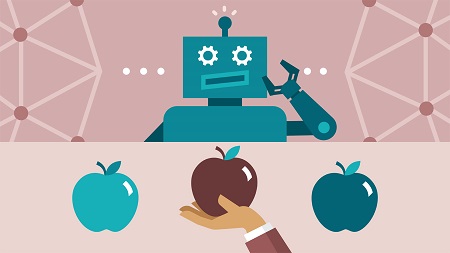
English | MP4 | AVC 1280×720 | AAC 48KHz 2ch | 0h 41m | 139 MB
Most modern programming is based on exact logic: black or white, yes or no, true or false, 0 or 1. However, we live in a world of partial truths and shades of grey. Fuzzy logic is designed to handle this ambiguity, and help computers more closely approximate human reasoning. In this course, Dr. Erin Colvin introduces fuzzy logic, its benefits, and its contributions to fields such as artificial intelligence and machine learning. Learn about related concepts such as fuzzy set theory and fuzzy inference, with practical examples from real-world applications of the technology.
Table of Contents
Introduction
1 Welcome
2 What you should know
A Brief Word on Ambiguity
3 What is ambiguity
4 Computer logic vs. human logic
5 Computers forced us to think logically
6 Issues with logical thinking
Discovery of Fuzzy Set Theory
7 Origins of fuzzy logic
8 Definition of fuzzy set theory
9 More ways to think about data
10 Membership function
11 Why do we need fuzzy data
Applications of Fuzzy Set Theory
12 Information retrieval
13 Fuzzy inference
14 Machine learning and artificial intelligence AI
15 Expert systems and simulations
Conclusion
16 Next steps
Resolve the captcha to access the links!